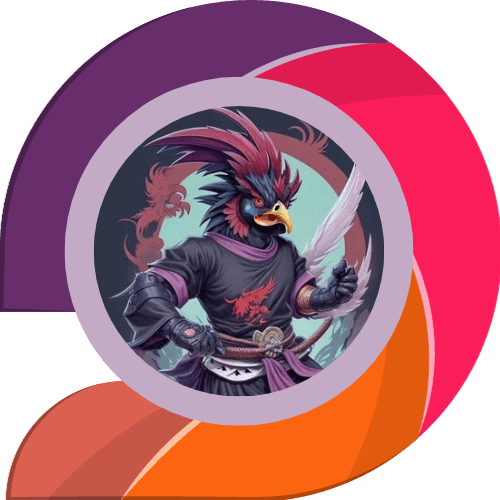
Revolutionizing HR Recruitment and Onboarding with AI: Strategies for Success
The Role of AI in Transforming HR Recruitment
Artificial Intelligence (AI) is changing the way companies find and hire talent. By automating key processes, AI helps organizations become more efficient and effective in recruitment.
Enhancing Candidate Sourcing and Screening
AI tools can quickly sift through thousands of resumes, identifying the best candidates based on specific criteria. This not only speeds up the hiring process but also ensures that no qualified candidate is overlooked. For example:
- Automated resume screening: AI can analyze resumes for relevant skills and experiences.
- Job board integration: AI can source candidates from multiple platforms simultaneously.
- Chatbots for initial screening: These can engage with candidates and ask preliminary questions.
Reducing Bias in Hiring Decisions
AI can help minimize unconscious bias in hiring. By relying on data rather than human judgment, AI promotes a fairer selection process. Key strategies include:
- Standardized evaluation criteria: AI evaluates candidates based on consistent metrics.
- Diverse candidate pools: AI can help identify and attract a wider range of applicants.
- Continuous monitoring: AI systems can track hiring patterns to ensure fairness.
Improving Candidate Experience
A positive candidate experience is crucial for attracting top talent. AI enhances this experience by:
- Streamlining communication: Automated updates keep candidates informed throughout the process.
- Personalized interactions: AI can tailor messages based on candidate profiles.
- Feedback collection: AI tools can gather candidate feedback to improve future hiring processes.
AI is not just a tool; it’s a game-changer in recruitment, making processes faster, fairer, and more efficient.
In summary, AI is revolutionizing HR recruitment by enhancing sourcing, reducing bias, and improving the overall candidate experience. Organizations that embrace these technologies will likely gain a significant competitive edge in attracting and retaining talent.
Streamlining Onboarding Processes with AI

Onboarding new employees can be a daunting task, but AI is changing the game. By automating many of the tedious tasks, companies can create a smoother experience for new hires.
Automating Administrative Tasks
- Document Verification: AI can quickly verify employee documents, reducing the time spent on paperwork.
- Form Collection: Collecting tax and payroll forms can be automated, ensuring nothing is missed.
- Background Checks: Initiating background screenings can be done seamlessly with AI tools.
Personalizing New Hire Training
AI can tailor training programs to fit individual needs, making the onboarding process more engaging. For example:
- Customized Learning Paths: New hires can receive training that matches their skills and job requirements.
- Real-Time Feedback: AI can provide instant feedback, helping new employees adjust quickly.
- Interactive Chatbots: Chatbots can answer questions and guide new hires through the onboarding process, making it feel less overwhelming.
Ensuring Compliance and Reducing Errors
AI helps maintain compliance by:
- Up-to-Date Regulations: AI systems can ensure that all necessary documents meet current legal standards.
- Error Reduction: By automating data entry, the risk of human error is significantly lowered.
- Centralized Information: All onboarding materials can be stored in one place, making it easy to access and manage.
Embracing AI in onboarding not only saves time but also enhances the overall experience for new employees, leading to better retention and satisfaction.
By implementing AI, companies can transform their onboarding processes, making them more efficient and enjoyable for everyone involved. This shift not only saves costs but also allows HR teams to focus on more strategic initiatives, ultimately benefiting the organization as a whole.
Learn how to optimize your employee onboarding process through implementing AI automation, saving costs and hours of productive time.
AI-Driven Decision Making in HR

Leveraging Data for Better Hiring Decisions
AI helps HR teams make smarter choices. By analyzing vast amounts of data, AI can identify the best candidates based on skills and experiences. This means less guesswork and more focus on what truly matters. For example, AI tools can quickly sift through resumes, highlighting top candidates who meet specific job requirements.
Predictive Analytics for Employee Retention
Using predictive analytics, companies can foresee which employees might leave. By looking at factors like job satisfaction and performance, AI can alert HR to potential issues. This allows organizations to take action before losing valuable team members. Here’s how predictive analytics can help:
- Identify at-risk employees
- Offer targeted support and training
- Enhance job satisfaction through tailored opportunities
Enhancing Workforce Planning
AI also plays a crucial role in workforce planning. By analyzing market trends and employee data, HR can make informed decisions about hiring needs. For instance, AI can forecast the demand for specific skills, helping companies adjust their recruitment strategies accordingly. This proactive approach ensures that organizations are always prepared for future challenges.
AI is transforming HR by making decision-making more data-driven and less biased.
In summary, AI-driven decision-making in HR not only improves hiring processes but also enhances employee retention and workforce planning. By leveraging data effectively, organizations can create a more efficient and equitable workplace.
Overcoming Challenges in AI Implementation for HR
Implementing AI in HR can be tough, but it’s essential for progress. Understanding the challenges is the first step to overcoming them. Here are some key areas to focus on:
Addressing Ethical Concerns and Bias
- Awareness: Recognize that AI can unintentionally reflect biases present in training data.
- Training: Regularly train AI systems with diverse data to minimize bias.
- Monitoring: Continuously monitor AI decisions to ensure fairness.
Balancing Human and AI Roles
- Define Roles: Clearly outline what tasks AI will handle versus human HR professionals.
- Collaboration: Encourage teamwork between AI tools and HR staff for better outcomes.
- Feedback Loop: Create a system for HR to provide feedback on AI performance.
Ensuring Data Privacy and Security
- Compliance: Stay updated on data protection laws to ensure compliance.
- Security Measures: Implement strong security protocols to protect sensitive information.
- Transparency: Be open with employees about how their data is used.
Implementing AI in HR is not just about technology; it’s about creating a culture that embraces change and innovation.
By focusing on these challenges, organizations can successfully integrate AI into their HR processes, leading to improved efficiency and better decision-making.
| Challenge | Solution |
|---|---|
| Ethical Concerns | Regular training and monitoring |
| Human vs. AI Roles | Clear definitions and collaboration |
| Data Privacy | Strong security and compliance |
Future Trends in AI for HR Recruitment and Onboarding
Integration with Other HR Technologies
AI is becoming a key player in HR tech. By integrating with existing systems, AI can enhance overall efficiency. For example, combining AI with applicant tracking systems can streamline the recruitment process, making it faster and more accurate.
The Rise of AI-Powered Chatbots
Chatbots are changing the way candidates interact with companies. They can answer questions, schedule interviews, and provide updates, making the candidate experience smoother. Here are some benefits of using chatbots in recruitment:
- 24/7 availability for candidate inquiries
- Quick responses to frequently asked questions
- Personalized communication based on candidate profiles
Continuous Learning and Adaptation
AI systems are designed to learn and improve over time. This means they can adapt to changing hiring needs and trends. For instance, AI can analyze past hiring data to predict future recruitment needs, helping HR teams stay ahead.
As AI continues to evolve, it will play a crucial role in shaping the future of HR recruitment and onboarding, ensuring organizations remain competitive in a fast-paced job market.
In summary, the future of AI in HR is bright, with trends like integration, chatbots, and continuous learning leading the way. Companies that embrace these changes will likely gain a significant competitive edge in attracting and retaining top talent.
Case Studies: Success Stories of AI in HR
Improving Recruitment Efficiency at Scale
A healthcare organization sought to empower its HR department by automating the recruitment and onboarding processes. By implementing AI tools, they streamlined candidate sourcing and screening, which led to a significant reduction in time spent on hiring. The results were impressive:
| Metric | Before AI | After AI |
|---|---|---|
| Time to Hire (days) | 45 | 25 |
| Candidate Satisfaction (%) | 70 | 90 |
| Offer Acceptance Rate (%) | 80 | 95 |
Enhancing Onboarding Experience
A major logistics company faced challenges onboarding frontline workers during graveyard shifts. Traditional methods left new hires feeling disconnected. By using AI-driven onboarding, new hires received tablets with an AI Assistant that:
- Introduced them to the company culture
- Collected necessary information
- Provided digital policies
This approach made onboarding faster and more engaging, improving retention and productivity among workers.
Boosting Employee Engagement and Retention
AI tools can also help organizations measure employee engagement. For instance, a non-profit organization used AI to collect feedback from employees, gauging their satisfaction and understanding employment trends. This data allowed HR to:
- Anticipate employee needs
- Offer supportive training opportunities
- Enhance overall job satisfaction
AI is not just a tool; it’s a game changer for HR, making processes smoother and more effective.
In conclusion, these case studies illustrate how AI is transforming recruitment and onboarding in various sectors, leading to better outcomes for both organizations and employees.
The Competitive Edge of AI in HR
AI is changing the game for HR departments, giving them a powerful tool to enhance their processes. Here’s how:
Scalability and Efficiency in Recruitment
- Faster hiring: AI can quickly sift through resumes, identifying the best candidates in a fraction of the time.
- Cost savings: By automating tasks, companies can reduce hiring costs significantly.
- Data-driven decisions: AI helps HR teams make informed choices based on real data, reducing guesswork.
Creating a Seamless Onboarding Experience
- Automated tasks: AI can handle paperwork and scheduling, allowing HR to focus on new hires.
- Personalized training: New employees receive tailored training programs that match their skills and needs.
- Continuous support: AI chatbots can answer questions and guide new hires through their first days.
Fostering a Culture of Innovation
- Encouraging feedback: AI tools can gather employee feedback to improve workplace culture.
- Identifying trends: By analyzing data, AI can spot patterns that help HR anticipate employee needs.
- Boosting engagement: AI can enhance employee satisfaction by providing insights into their experiences.
AI is not just a tool; it’s a strategic partner in HR, helping organizations stay ahead in a competitive market.
In summary, integrating AI into HR practices not only streamlines operations but also fosters a more engaged workforce. As companies embrace these technologies, they gain a significant edge in recruitment and onboarding, ultimately leading to better employee retention and satisfaction.
By focusing on AI strategy, HR leaders can ensure they are not just keeping up but leading the way in modern recruitment and onboarding practices. HR strategy is more crucial for people leaders to focus on today than AI strategy, as it shapes the future of work.
Artificial Intelligence (AI) is changing the game in Human Resources (HR). It helps companies find the best candidates faster and more fairly. If you want to learn how AI can give your business an edge, visit our website for more insights!



Leave a comment